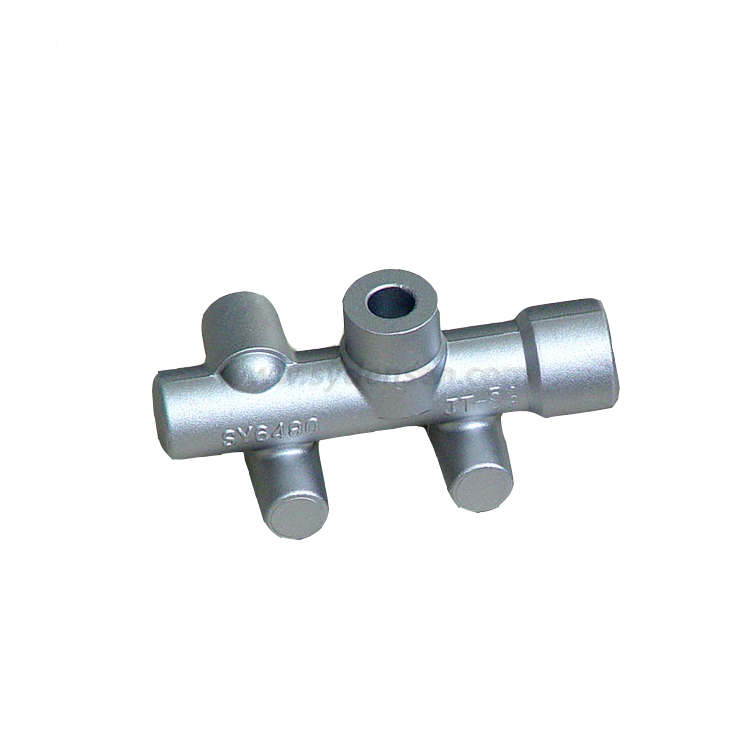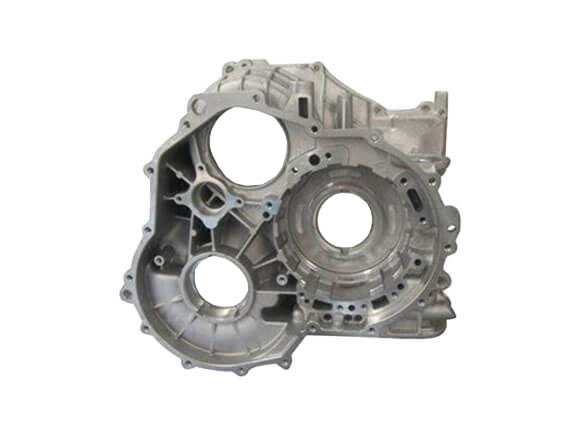How Precision aluminum casting Supports Sustainable and Eco-Friendly Manufacturing
Wiki Article
Discover the Benefits of Aluminum Casting in Modern Manufacturing
Aluminum casting has emerged as an essential procedure in modern-day manufacturing. Its lightweight yet durable nature provides substantial benefits for various industries. The capacity to attain elaborate layouts and keep tight resistances includes in its allure. Aluminum Casting Company. Furthermore, the cost-effectiveness and environmental advantages make it a lasting selection. As producers seek cutting-edge solutions, the function of aluminum casting proceeds to evolve. What certain applications and advantages await exploration in this vibrant field?Light-weight Yet Solid: The Benefits of Aluminum
Although numerous materials are made use of in manufacturing, aluminum stands out as a result of its amazing mix of lightweight residential properties and remarkable toughness. This unique feature makes aluminum an optimal selection for various applications, particularly in industries such as vehicle, aerospace, and construction. Its low thickness enables simpler handling and transportation, adding to reduced energy intake during manufacturing and setting up procedures.In addition, aluminum's strength-to-weight ratio is outstanding, enabling makers to produce durable components without including unneeded bulk. This characteristic is specifically important in industries where weight reduction can lead to improved fuel efficiency and total performance. Furthermore, aluminum's resistance to corrosion improves the durability of items, better strengthening its allure in modern-day manufacturing.
Ultimately, the light-weight yet strong nature of aluminum positions it as a recommended product, cultivating advancement and efficiency across multiple sectors. Makers progressively identify that these advantages can bring about substantial advancements in layout and performance.
Precision and Intricacy in Design
As manufacturers embrace the capacities of aluminum casting, they uncover new avenues for precision and complexity in layout. This manufacturing process permits the development of intricate forms and detailed attributes that typical techniques often have a hard time to attain. The fluidness of liquified aluminum enables it to fill complex molds, resulting in elements with tight resistances and fine surface area coatings.This precision is especially advantageous in industries such as aerospace and automotive, where specific specifications are necessary for performance and security. Aluminum casting also accommodates cutting-edge layouts that boost capability without jeopardizing structural honesty.

Cost-Effectiveness and Effectiveness
Cost-effectiveness and effectiveness are critical factors to consider for makers discovering aluminum casting as a manufacturing technique. Aluminum casting offers considerable price advantages due to its lower material expenses compared to various other steels (aluminum casting). The light-weight nature of aluminum minimizes shipping and handling expenses, and its excellent thermal conductivity permits for quicker cooling times during the casting process, improving general production speedMoreover, aluminum's adaptability makes it possible for suppliers to produce intricate shapes and styles, decreasing the need Aluminum Casting Company for added machining or setting up. This streamlining of production not only minimizes labor costs yet also reduces preparations, allowing firms to react promptly to market demands.
In addition, the longevity and deterioration resistance of aluminum castings add to longer item life expectancies, decreasing replacement prices with time. Therefore, suppliers can accomplish an equilibrium of high-grade output and lowered operational expenditures, making aluminum casting an increasingly eye-catching alternative in modern manufacturing.
Environmental Sustainability of Aluminum Casting
Aluminum casting stands out as an environmentally sustainable manufacturing option, specifically due to its recyclability and reduced eco-friendly impact. The procedure permits the efficient use aluminum, a material that can be reused indefinitely without losing its homes. This characteristic considerably reduces the demand for virgin aluminum, thereby preserving all-natural sources and reducing power consumption related to removal and handling.
Applications Throughout Industries: From Automotive to Aerospace
While diverse markets proceed to seek cutting-edge products for production, aluminum casting has actually verified to be a functional solution across industries such as automobile and aerospace. In the automobile market, aluminum spreadings add to lightweight vehicle styles, boosting fuel effectiveness and performance. Elements like engine blocks, transmission housings, and wheels gain from aluminum's strength-to-weight proportion.In a similar way, in aerospace, aluminum casting plays a considerable function in producing intricate parts that need high sturdiness and low weight. Aircraft components such as brackets, landing equipment, and architectural frameworks use aluminum for peak performance and safety.
Moreover, the flexibility of aluminum casting permits it to satisfy various other industries, including customer electronics, marine, and industrial equipment. This convenience not just meets the specific requirements of various applications yet also supports continuous advancement in manufacturing processes. Consequently, aluminum casting stays an essential gamer in modern-day manufacturing across numerous industries.
Frequently Asked Concerns
Just How Does Aluminum Casting Compare to Various Other Metal Casting Procedures?
Aluminum casting offers remarkable strength-to-weight ratios, faster cooling prices, and outstanding corrosion resistance compared to various other steel casting processes. These benefits make it excellent for different applications, enhancing effectiveness and performance in production.What Are the Common Lead Times for Aluminum Casting Projects?
Regular lead times for aluminum casting jobs range from two to 8 weeks, relying on aspects such as intricacy, order size, and production capacity. Reliable preparation can assist decrease hold-ups and boost job timelines.Can Aluminum Casting Be Utilized for Intricate Layouts?
Aluminum casting can certainly fit complex designs. Aluminum Casting Company. Its fluidity allows for detailed patterns and shapes, making it suitable for complicated parts in various sectors. This versatility improves layout freedom while keeping structural integrity and performanceWhat Post-Processing Options Are Available After Aluminum Casting?
Post-processing alternatives for aluminum casting consist of machining, brightening, surface area treatments, anodizing, and welding. These strategies boost the coating, improve dimensional precision, and boost deterioration resistance, thus maximizing the end product's performance and visual charm.Just How Do Temperature Level Adjustments Impact Aluminum Casting Top Quality?
Temperature adjustments substantially impact aluminum casting top quality by impacting fluidness, solidification rates, and potential flaws. Fast cooling can result in enhanced brittleness, while excessive heat may create warping or incomplete filling of molds during casting.Aluminum casting has actually arised as a critical procedure in modern manufacturing. As suppliers welcome the capacities of aluminum casting, they uncover new methods for precision and intricacy in design. Aluminum casting processes commonly generate fewer greenhouse gas emissions contrasted to other metal casting techniques. While varied sectors proceed to seek cutting-edge products for production, aluminum casting has actually shown to be a functional remedy throughout markets such as auto and aerospace. In the vehicle market, aluminum spreadings add to lightweight lorry layouts, improving fuel efficiency and performance.
Report this wiki page